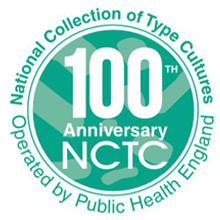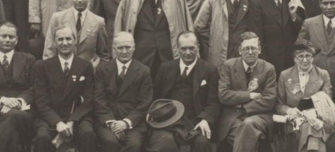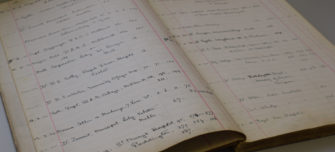75th anniversary: Fleming Showcase Archive Exhibition

About the exhibition
In designing the programme for our 75th anniversary in 2020, we undertook research of the Microbiology Society’s early history at the Wellcome Collection in London, where the archives for the Society for General Microbiology (our original name) are held. From this research, we were lucky enough to uncover several items including letters and photographs that provide a unique insight and visual guide to the founding days of the Society. The aim of the founding members, which included Sir Alexander Fleming FRS and Marjory Stephenson FRS, was to bring together scientists working in different areas of microbiology to form a Society that would offer the benefits of interdisciplinary discussion and provide microbiologists with a common meeting ground. 75 years later, this aim remains central to our purpose.
In producing this small exhibition, we have collaborated with Public Health England’s (PHE) National Collection of Type Cultures (NCTC) team, who kindly re-produced items relating to the work of Sir Alexander Fleming from their own archives. One of the founding members of the Society, Ralph St John- Brooks, was also the first curator of the National Collection of Type Cultures from 1920 until 1946.

Public Health England's National Collection of Type Cultures
The National Collection of Type Cultures itself is a repository and provider of a diverse range of authentic bacterial pathogens, medically relevant bacterial strains and bacteriophage. Established in 1920, NCTC is currently celebrating its centenary. Like the Microbiology Society, supporting a diverse scientific community of microbiologists and their collaborators remains central to its remit.
The value of such a collection to microbiologists is well illustrated by Fleming’s use of it throughout his career; from acquiring strains to test and characterise the then newly discovered lysozyme in the 1920s, to depositing strains of contemporary biomedical interest such as NCTC 6571 (“The Oxford Staphylococcus”) which was used by Fleming during the penicillin trials of the 1940s. Through these strains’ use in research and their maintenance in the NCTC, the legacy and work of microbiologists past and present, including Sir Alexander Fleming, is preserved; and presented here today.
We hope you enjoy this exhibition, alongside our Fleming Showcase which is dedicated to the legacy of Fleming Prize winners and aims to demonstrate the impact of both established and up-and-coming scientists in addressing important global challenges.
-
Wellcome Images: Society for General Microbiology archives
Browse through images sourced from the Wellcome Collection's Society for General Microbiology archives.
-
Public Health England’s National Collection of Type Cultures
Browse through the National Collection of Type Cultures archives.
Image credits:
Wellcome Collection Society for General Microbiology ArchivesPublic Health England Archives
National Culture of Type Cultures




